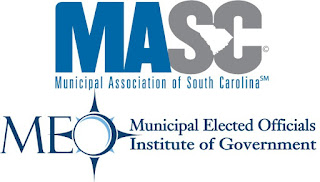- Flexibility with hospitality and accommodations tax revenue: The introduction of H3132 and S217 means that both chambers are looking at allowing cities and towns to use this revenue for flooding and drainage at tourist destinations. S217 has already passed the Senate and is in the House Ways and Means Committee for debate by House members.
- Local Government Fund predictability: H3137 aims to create a more stable funding level. H3137 passed the full House Ways and Means Committee unanimously and is now on the House calendar for debate by the full House.
- Reducing wait times for new hires at the Criminal Justice Academy: Subcommittees have received testimonies on budget needs from law enforcement, and Gov. Henry McMaster has proposed $9.7 million in recurring general budget funds for the Academy.
All of this activity makes Hometown Legislative Action Day next week on February 5 an excellent time for cities and towns to talk to their legislators at the State House. Beyond those meetings and the briefing from the Association’s legislative team, the HLAD agenda has a number of highlights:
- A keynote address from Gov. McMaster.
- A panel on crisis communication with several city public safety leaders.
- SC Emergency Management Division Director Kim Stenson’s discussion of emergency management for cities during the luncheon.
- SC Law Enforcement Division Chief Mark Keel’s talk on law enforcement practices.
Details for attending
Those attending HLAD or the Municipal Elected Officials Institute of Government sessions can find all the information they will need on the meeting app and Association’s website. To get the app, visit l.masc.sc/2019HLADapp on your device and follow the instructions. You’ll be asked to install Yapp from the app store (if you don’t have it already). Open Yapp and tap the HLAD graphic. You can create personalized schedules from the agenda and connect with other attendees during the event.Limited parking for HLAD participants can be found in the parking garage behind the Marriott, with entrances on Hampton and Sumter streets. Parking in the garage costs $10 per day, payable by cash or credit card. Attendees and hotel guests may not park above level 4-A in this garage or they will be towed.
There will be additional parking available in the nearby Cannon parking garage with shuttles available. See this Uptown article for more information.

